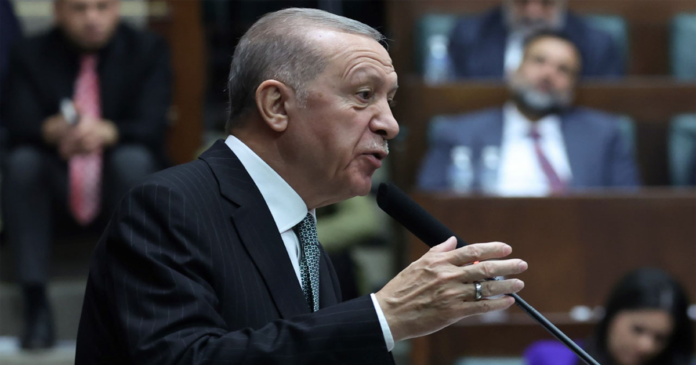Turkey vehemently rejected a UN Security Council statement that blamed the latest disturbance on the split island of Cyprus on the Ankara-supported separatist administration.
Turkey steps up war of words with UN: The conflict came after a clash with UN forces last Friday, which highlighted the numerous obstacles Turkey must overcome as it resurrects its application to join the European Union.
Since winning a challenging reelection in May, Turkish President Recep Tayyip Erdogan has made improving relations with Western allies one of his top priorities.
However, one of Turkey’s numerous disagreements with the EU involves its backing of a separatist government in the northern portion of EU member Cyprus, a governing body that Ankara is the sole entity recognizing.
Last Friday, when UN forces attempted to physically obstruct the Turkish Cypriot government from building a road in the buffer zone dividing the east Mediterranean island, those tensions erupted.
Both parties acknowledge that the event harmed four members of the UN Peacekeeping Force in Cyprus (UNFICYP).
Both the European Union and Washington attributed the confrontation to the government, which receives support from Turkey.
The UN Security Council warned that “attacks targeting peacekeepers may constitute crimes under international law” in a statement following a meeting held behind closed doors to discuss the developing crisis.
The 15-person panel “called for the removal of all unauthorised constructions and the prevention of unauthorised military or civilian activities within and along the ceasefire lines” as well.
The UN declaration was deemed unjust by Turkey.
The Turkish foreign ministry declared, “The United Nations Security Council’s press statement… completely disregards the realities on the ground.”
“There was plenty of notice given regarding the road repair. As a result, the UNFICYP forces’ personal involvement in the road building work was what caused the tension, according to the Turkish statement.
Turkey pushes the EU –
The incident has turned out to be one of the worst of its sort on the island in recent memory.
Turkish Cypriot authorities have since started speaking with regional UN envoys and stopped construction in the contested area.
However, they as well as Ankara maintain that the route was both legitimate and necessary for connecting the Turkish Cypriot communities in Pyla, an ethnically diverse settlement, with those who reside in the north.
Turkish government representatives assert that the UN ignored highways connecting Greek Cypriot villages in the buffer zone with the south.
Since Turkish soldiers seized control of the northern third of the island in response to a military coup supported by the junta in charge in Greece in 1974, Cyprus has remained divided.
Since the previous round of UN-sponsored negotiations ended in failure in 2017, efforts to reunite the island have been at a standstill.
EU officials have made a final resolution to the Cyprus problem a condition for resuming their own long-stalled negotiations on deeper ties with Turkey.
Josep Borrell, the head of EU foreign policy, stated last month that “resolving the Cyprus issue in line with the relevant United Nations resolutions will be key in this re-engagement with Turkey.”
On Tuesday, Hakan Fidan, the foreign minister of Turkey, stated that Ankara anticipated Brussels “to revise their stringent opinion about membership.”
They ought to reconsider it, Fidan told the press. We think that Turkey’s entry into the EU is a move that will strengthen the EU’s standing internationally.

